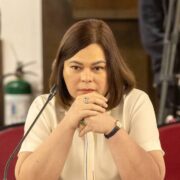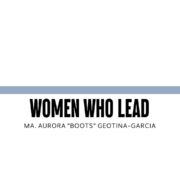Staying alive in Mindanao

It’s easy to call out corruption when you’re only naming the big politicians and national agencies. Everyone else is doing the same and you share in the collective rage. The right to free speech is real, the power it holds all the more empowering.
Unfortunately, as a resident of Mindanao, that’s where the limitation lies. The memes are true. We can’t speak about our local “crocodiles” lest we die.
Niruh Kyle Antatico’s murder is a recent testament. A former employee of the Department of Agrarian Reform and the National Irrigation Administration in Region 10, he boldly spoke up on the corruption in the disbursement of subsidies for farmers. He was met with death threats and was eventually gunned down by a riding-in-tandem.
When you witness someone being that vocal in Mindanao, you can’t really expect them to be left unscathed.
Only God knows how many people like him have been killed for trying to expose the truth, or in some cases, for accidentally witnessing crimes committed by “powerful individuals.”
In the northeast region of Mindanao where I’m from, the words “gitiro” and “gipusil” are household terms. As a child, I would play outdoors and randomly hear from the big-bellied uncles in the neighborhood that someone had been shot dead, again. They peak during elections when rivalry between opposing parties takes centerstage, during which you have to be careful what you say, how you say it, where you say it, and against whom.
It effectively established the silent rule of not speaking ill of the government, which works very well in a deep-seated system of patronage politics. You can easily imagine, then, what being a UP student coming home for Christmas looked like at the dining table.
I took up journalism and was taught repeatedly that “no story is worth dying for.” It was such a bummer. I can still remember the intense disappointment I felt hearing it for the first time as an overly passionate freshman. Apparently, even in the industry of truth-telling, there are limitations.
Unknown to my professors, I pursued some stories that broke the golden rule. Being the only student-journalist in UP from my province at that time, I felt responsible to put into paper what my people back home could only talk about discreetly. It helped that I was a petite college girl who, when interviewing sources, looked like I was just doing homework, not serious investigation. This, however, came with an understanding that they will never be published. Aside from the fact that they were poorly written because of my cramming, sharing them publicly would instantly reduce my life expectancy.
I thought possessing a media ID would afford me protection, but the hat I wore only made me more vulnerable. Free speech and freedom of the press take a backseat when the rumor of prominent figures having their “own men” to dispose of you is too daunting.
Whatever occupation or status you have in life, there seems a necessary form of self-censorship if you live in Mindanao. My friends from Marawi City practice this best. It has already been eight years since the Marawi siege, and only their Allah knows everything that’s burning deep in their hearts that they want to let out if they could.
The political violence in our part of the archipelago is real and persisting. It conditioned us to tone down our voices and only speak the truth in whispers. I had to figure out how to water down my criticisms, relying on careful reposting and subtlety. Most of us resort to humor.
We have so many things we want to say online, too. We have our own set of “nepo babies” whose lifestyles we grew up seeing become more extravagant. We have the spiciest gossip, not just on corruption but also on the mistresses of politicians. Yet, we are constrained to gatekeep things geographically, only rejoicing quietly with the revelations of issues in our local contracting firms. We can’t even dare to repost the news reports. That’s how stifling it has become.
I think we are a people already accustomed to living with open secrets, with the truth already apparent but untouchable in front of us. I have seen disaster victims and vulnerable sectors choose to just endure quietly because the concept of accountability is so foreign and scary.
It is a bold thing calling out government leaders and exposing injustices one thread and hashtag at a time. But I believe it is equally bold for those of us who choose self-restraint now, in order to play the long game.
So, until it is safe, I hold my tongue, momentarily content in participating through other means. I do celebrate the lives of those who chose the instantly heroic option to risk it all now and die for the country, but in the future, when the systems finally change, I prefer to still be alive marching with the next generation on the streets.
—————-
J-Ann Avila, 25, is a second-year law student at the University of the Philippines. She holds a bachelor’s degree in journalism from the same institution.

















Why inclusive health care is good economics